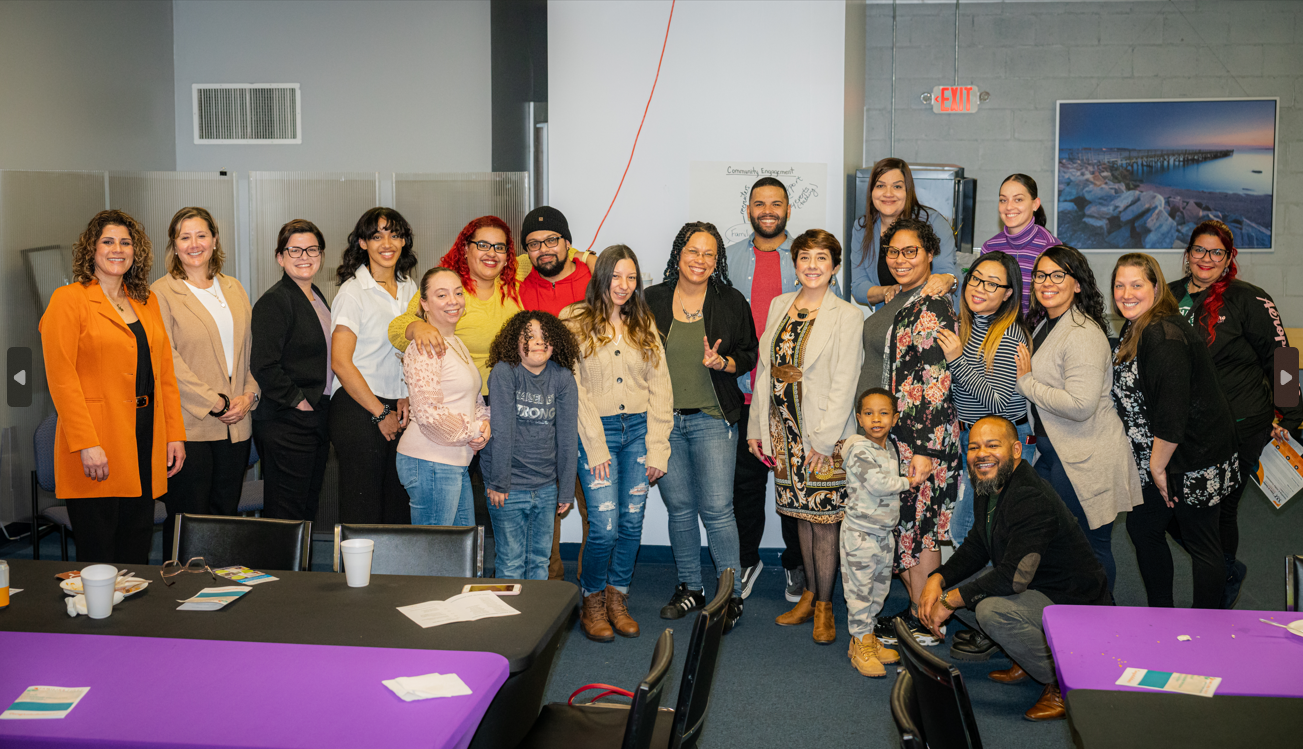“Since the beginning, we have worked with parents. We believe that they have the power to change families and communities,†Magda Rodriguez says. “Parents play a critical role in improving children’s outcomes.â€
Rodriguez is the Senior Director of National Strategy at Families First, and she’s talking about the work her organization does to amplify parents’ power.Â
Four years ago, Families First enhanced its efforts by creating the Ripple Program, an eight-month program that trains parents and community agencies to work together to develop family-friendly policies and practices.Â
The Ripple Program runs a series of leadership training sessions for parents as well as two sessions for agency staff. Families Firsts also provides support for a five-month community impact project that parents and agencies co-create.
These projects are diverse because they are driven by the communities, and each community has its own needs. One example is the Boston Public Schools Universal Pre-K (UPK) Program, which asked Families First parents to come up with outreach strategies that would boost family engagement. Another example is the work done by parents and the organization Self Help Inc. to develop mental health resources for their community.
Other participating agencies have included Healthy Chelsea, Boston Opportunity Agenda, Urban Edge, the Urban College of Boston, and 50 other partners across the state.
“What we want,†Rodriguez says, “is for people to really see that we can all work together for a good cause.â€
For Qin Li, this work is personal. In 2019, she enrolled in Families First’s Power of Parenting program. An immigrant from China and the mother of two boys, who received her Ph.D. in Management from Huazhong Normal University, Li says that her priority was to be a good parent. Thanks to Families First, she also became a parent leader as well as one of the organization’s Parent Ambassadors.
“I worked on several projects, including one with the Basics Boston,†Li says. “I had two parent fellows, and we were educating parents of young children, ages zero to five, about sharing the Basic’s messaging, which is tips and reminders for parents about the principles of child development. And we hosted workshops for parents in the East Boston/Revere/Chelsea area.â€
“We really want to engage people who live in the community because the people who live in the community know the community. They are the experts of their community, and they know what the community needs. And that’s what really makes change.â€
Li turned her experiences as a parent leader into a job. Today, she works as Families First’s Senior Program Manager for the Ripple Program.Â
To understand the program’s effectiveness, Families First looks at three levels of impact:
• the impact on parent leadership: whether parents are engaged, whether they are speaking up, and whether they think their voice matters
• the agency level impact: whether agencies are better able to reach more parents and build policies and programs that reflect the needs of parent, and
• community impact, whether the community in general and children in particular are benefiting from the work of parent leaders and agencies.
One clear outcome of the work is that some agencies are hiring parents to do community work, just as Families First hired Li. To understand more about its impact on agencies and parents, Families First is partnering with the Center for Policy, Research, and Evaluation, which is part of New York University’s Metropolitan Center for Research on Equity and the Transformation of Schools .
So far, the impact that parent leaders have on children has been essential.
“When parents are involved and understand what’s happening at school, they can really partner with the teachers and principals. They can be better advocates for children,†Rodriguez says.
“What we talk about is that learning doesn’t only happen in the classroom. Learning also happens outside the classroom when kids are home counting, talking, reading, doing homework, and exploring the world. That’s why we need parents to understand their role, and we need a system that supplies parents with resources.â€
Families First does face challenges. It is seeking more agencies that are excited about collaborating with parents. And more funding would help Families First support the stipends it pays parents.
Rodriguez would also like to see family engagement become a high-profile policy issue.
Because family engagement professionals aren’t paid enough, their turnover is high, which means schools don’t always have the personnel they need to engage families. Rodriguez would also like to see family engagement become a metric for more schools and early education programs. This would improve children’s experiences.
What’s next on Families First’s agenda? Growth.
Families First could expand either in Massachusetts or other states. The organization can engage more parents in change — which is, Rodriguez says, one effective way to lessen the cultural and racial biases that some families face. And the number of community projects could grow from 20 to 30 annually to a high of 90 within five years.
“Many parents are very talented, but they didn’t have a lot of opportunities when they were children,†Rodriguez says. “They don’t think they have a lot of options because they missed the chance to go to college.â€
“So, of course, we want to invest in children, but we can’t forget that parents are so ready and eager to engage in change. And sometimes they just need the opportunities and resources and tools to unleash the power that is within them.â€


[…] McGowan hesitated, then she enrolled in a training program run by Families First. […]